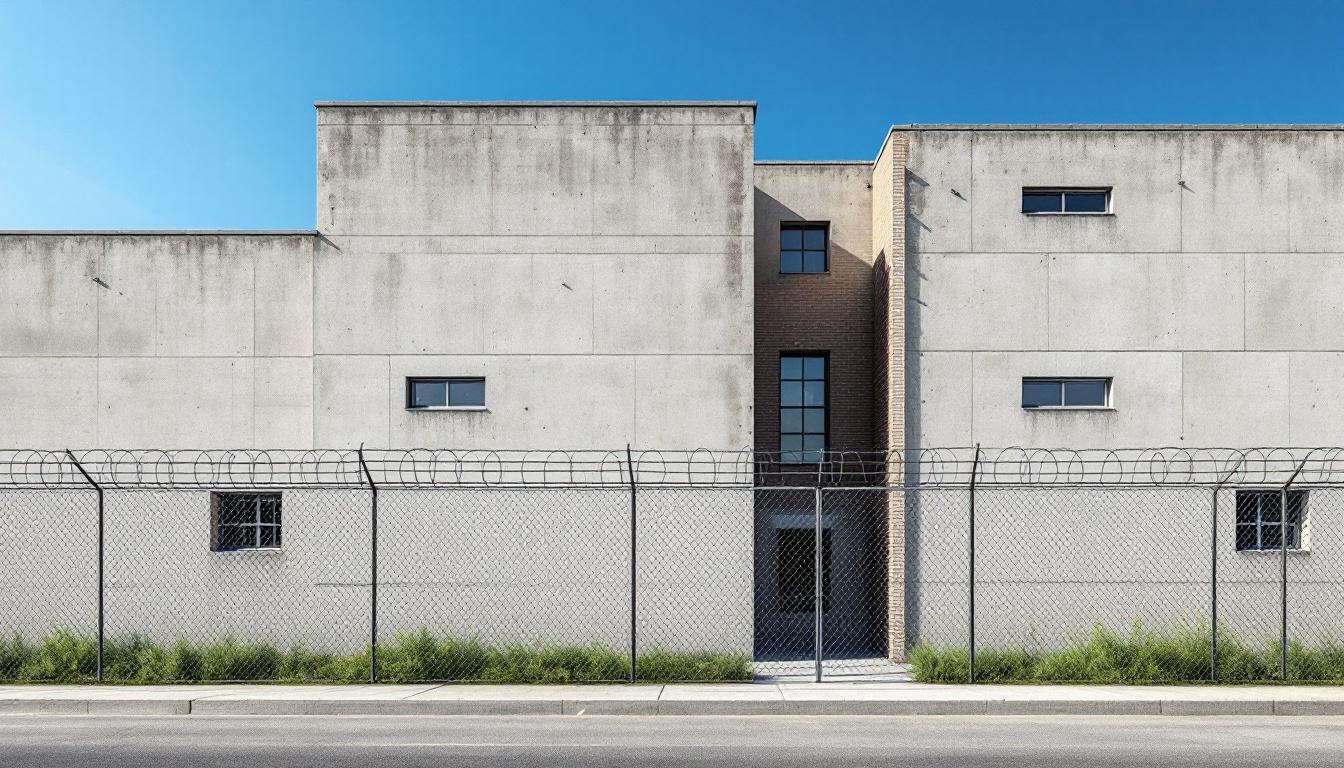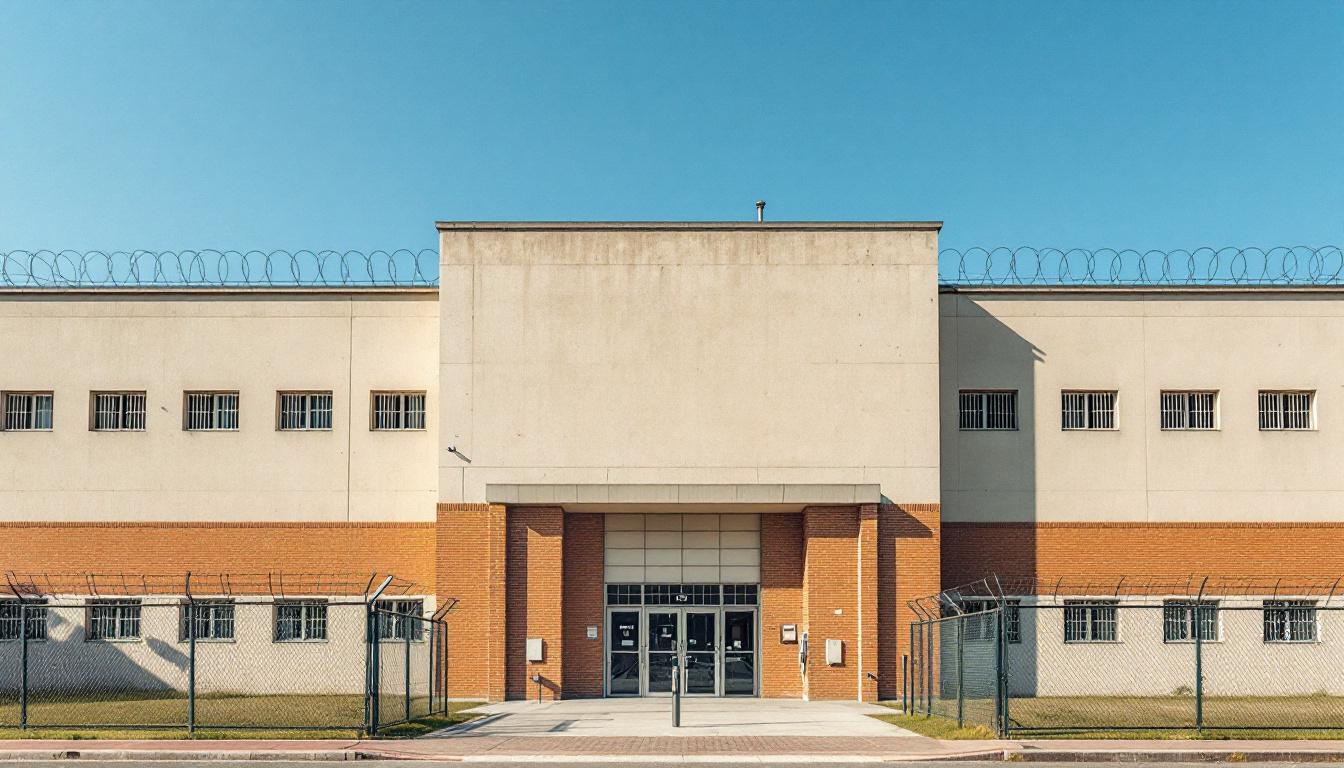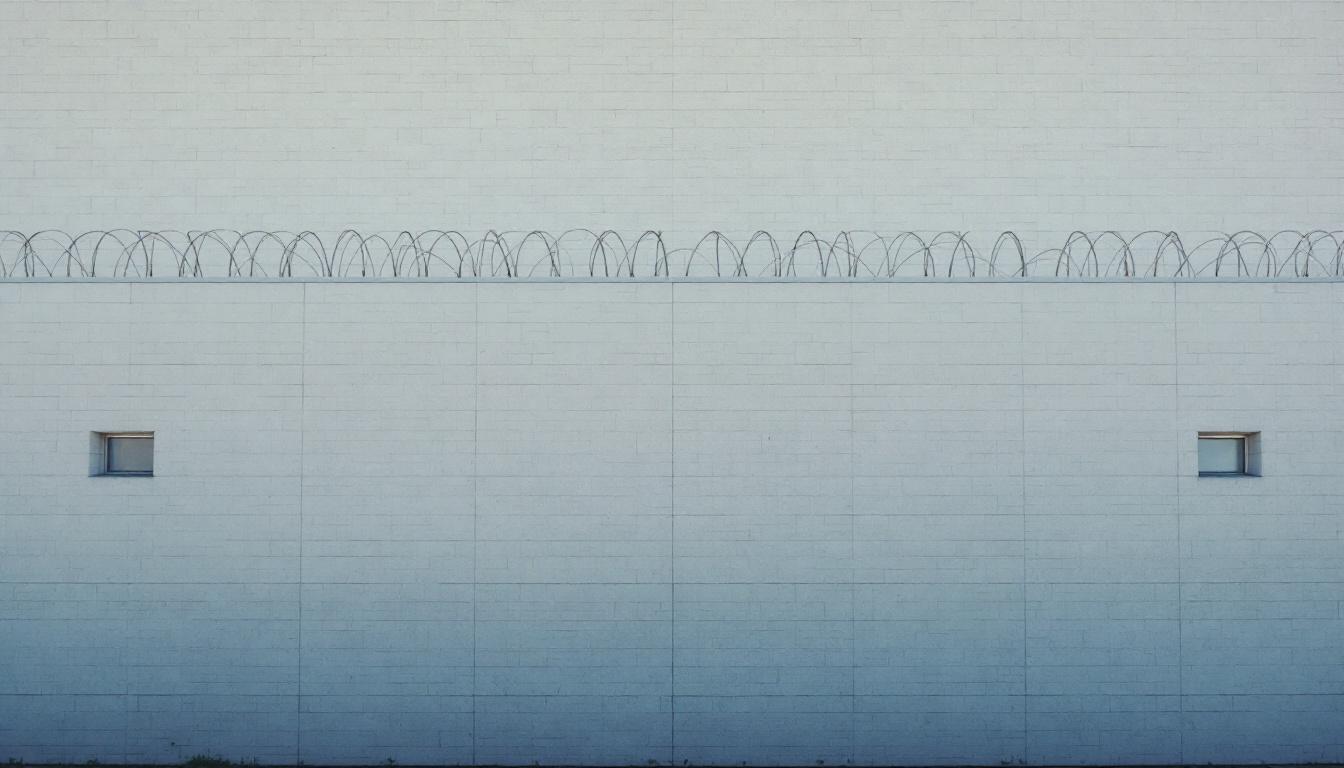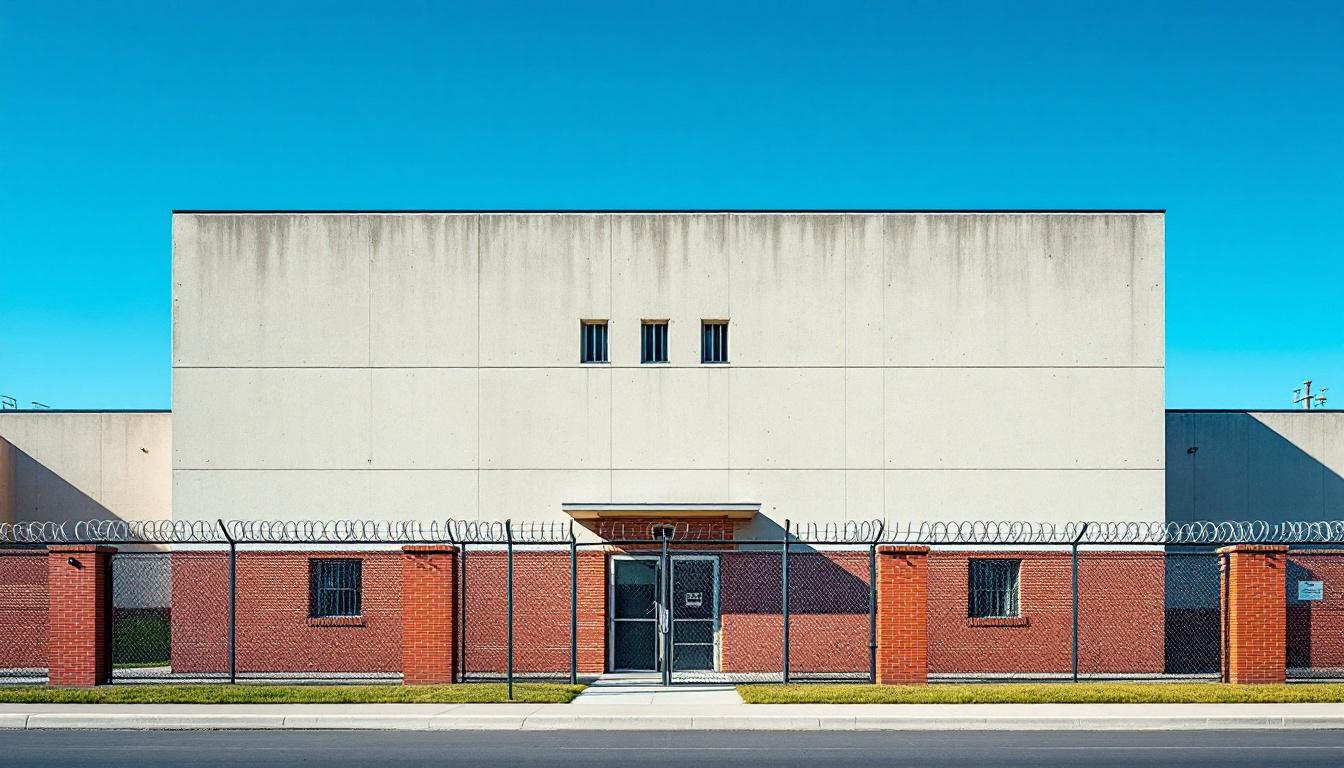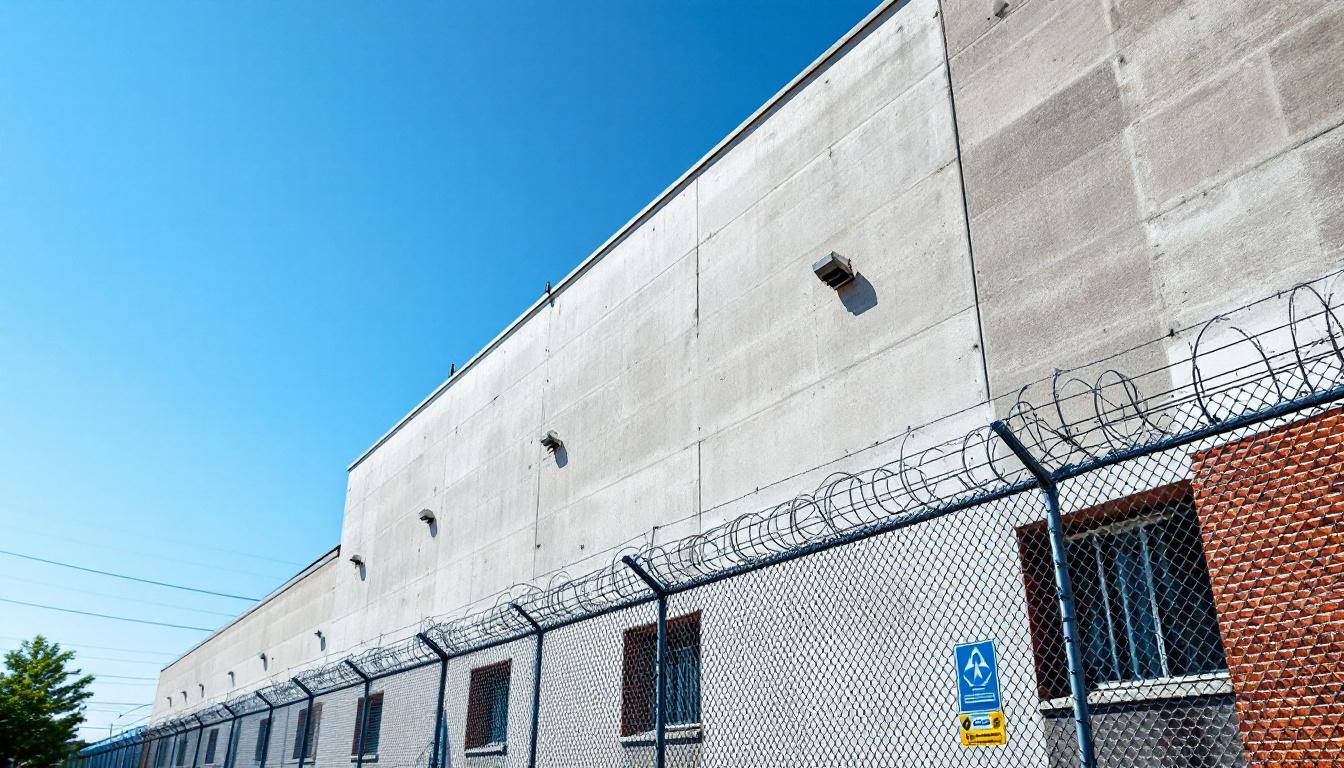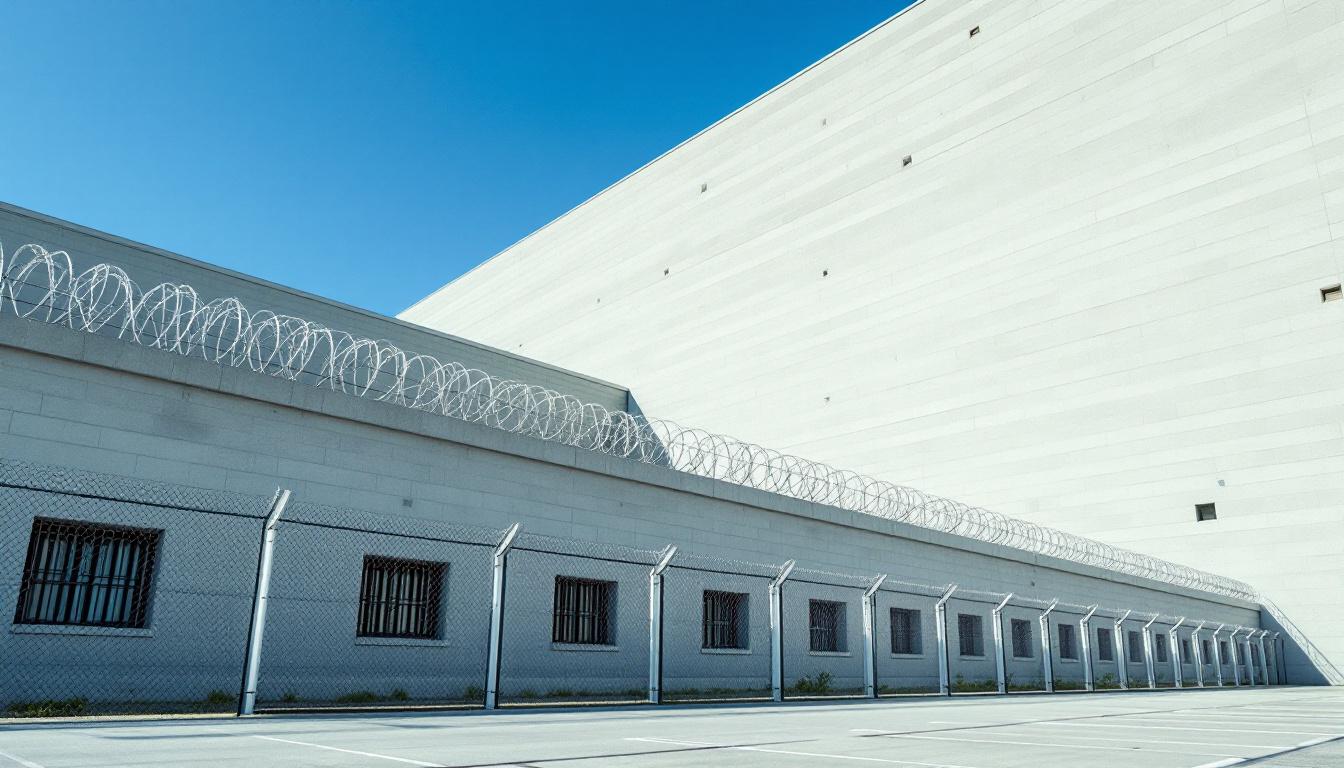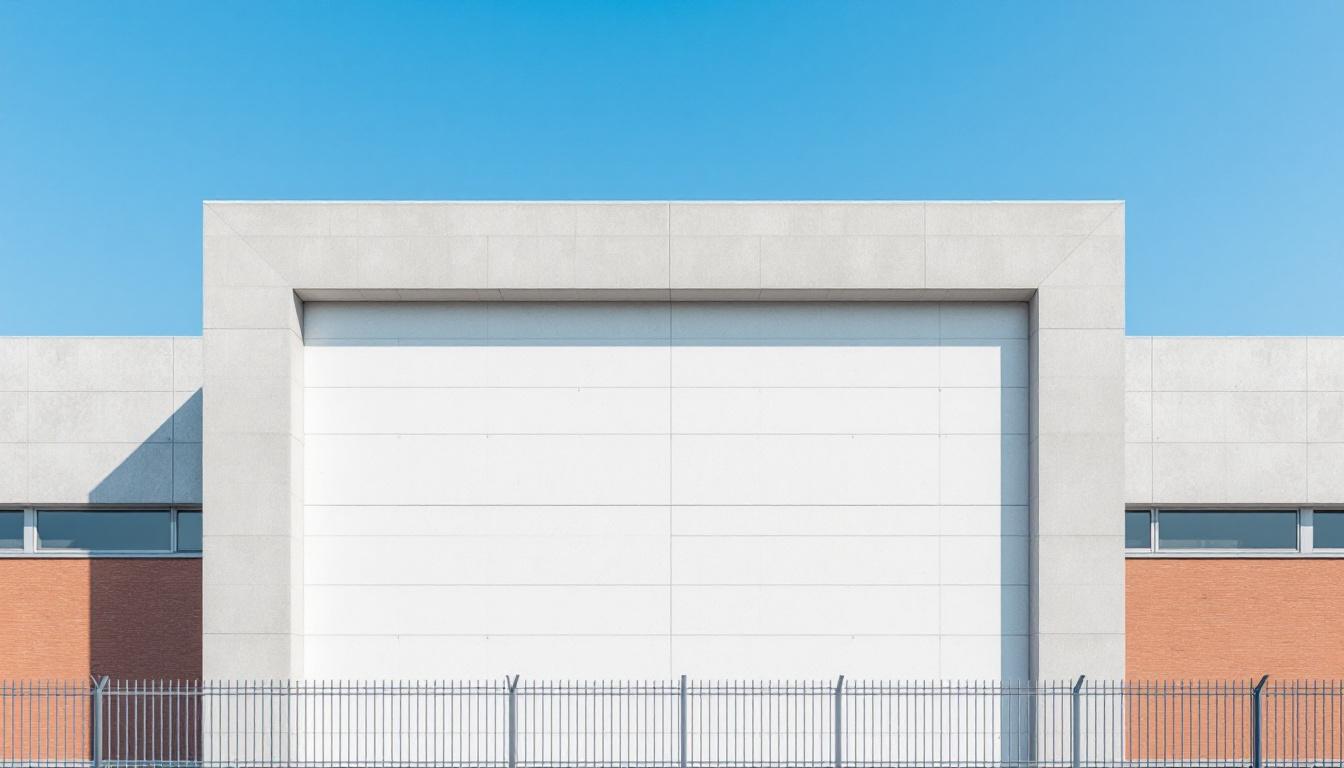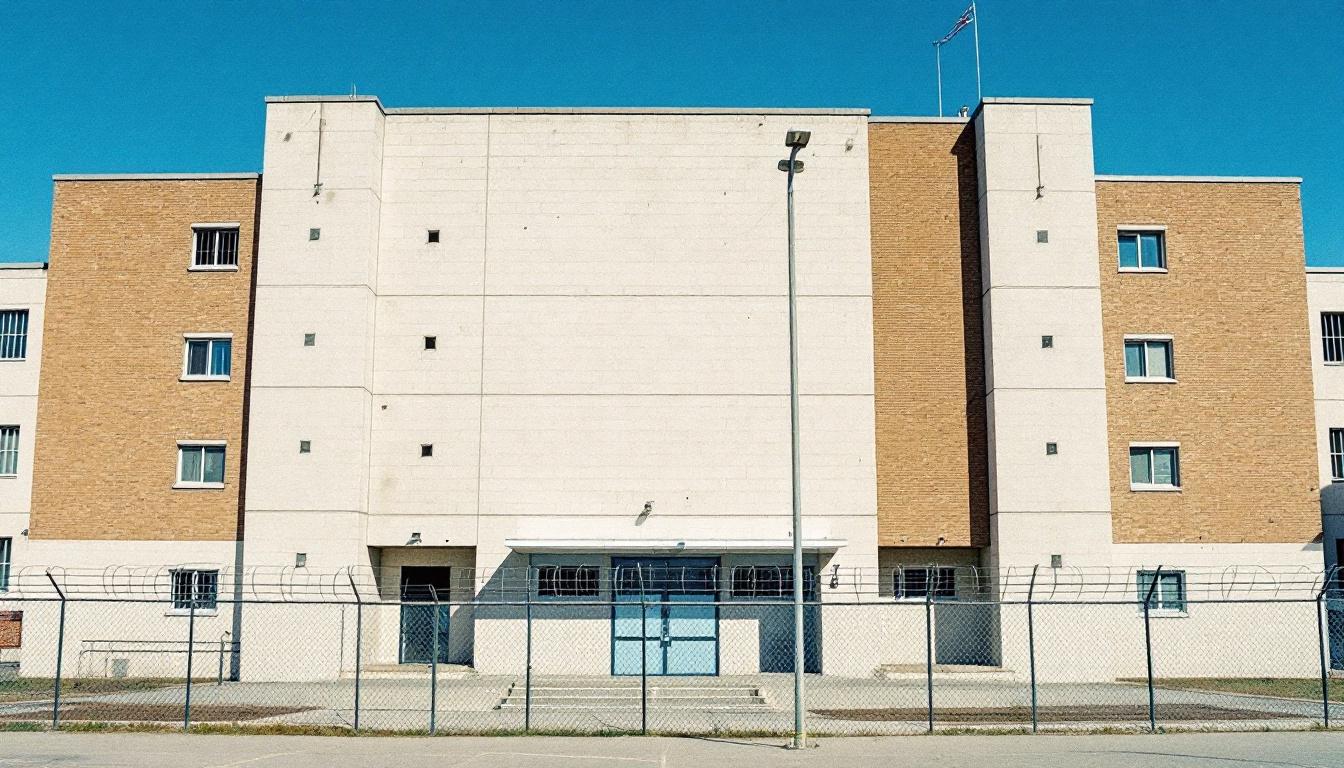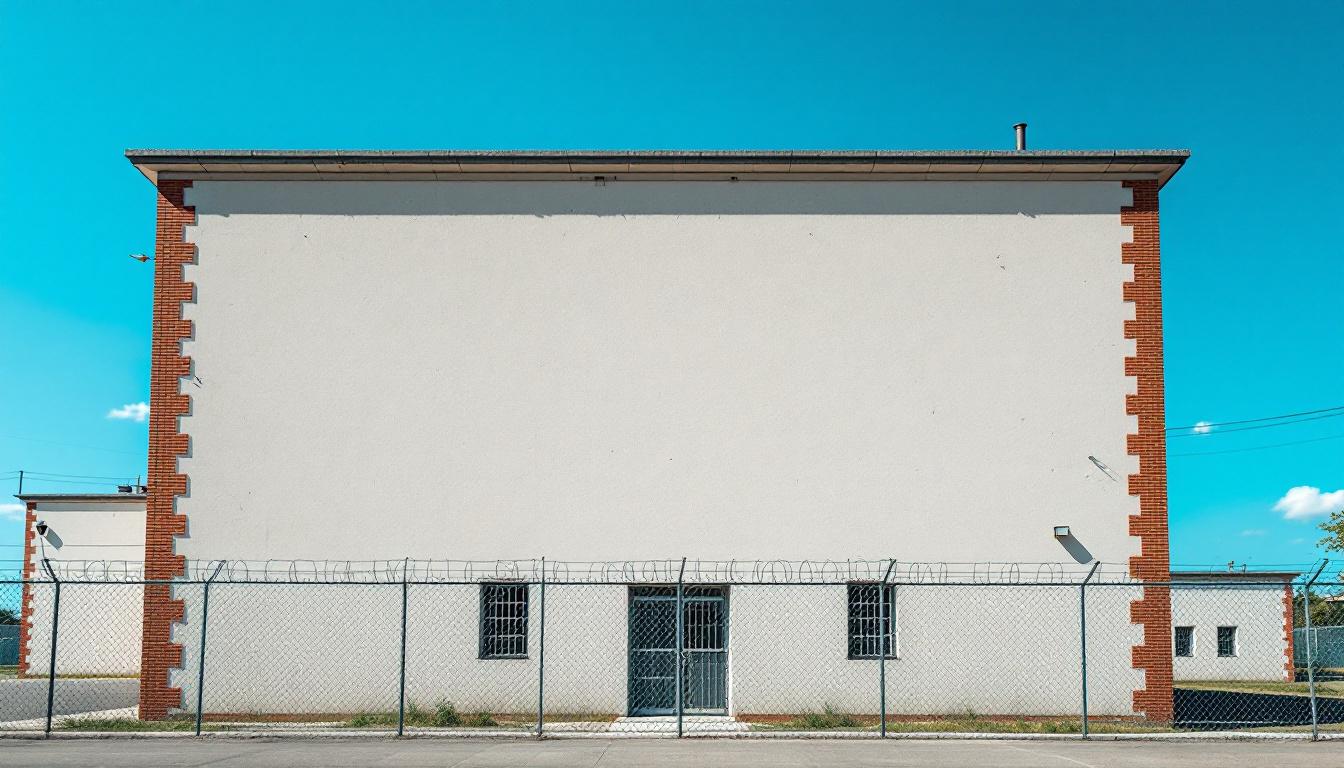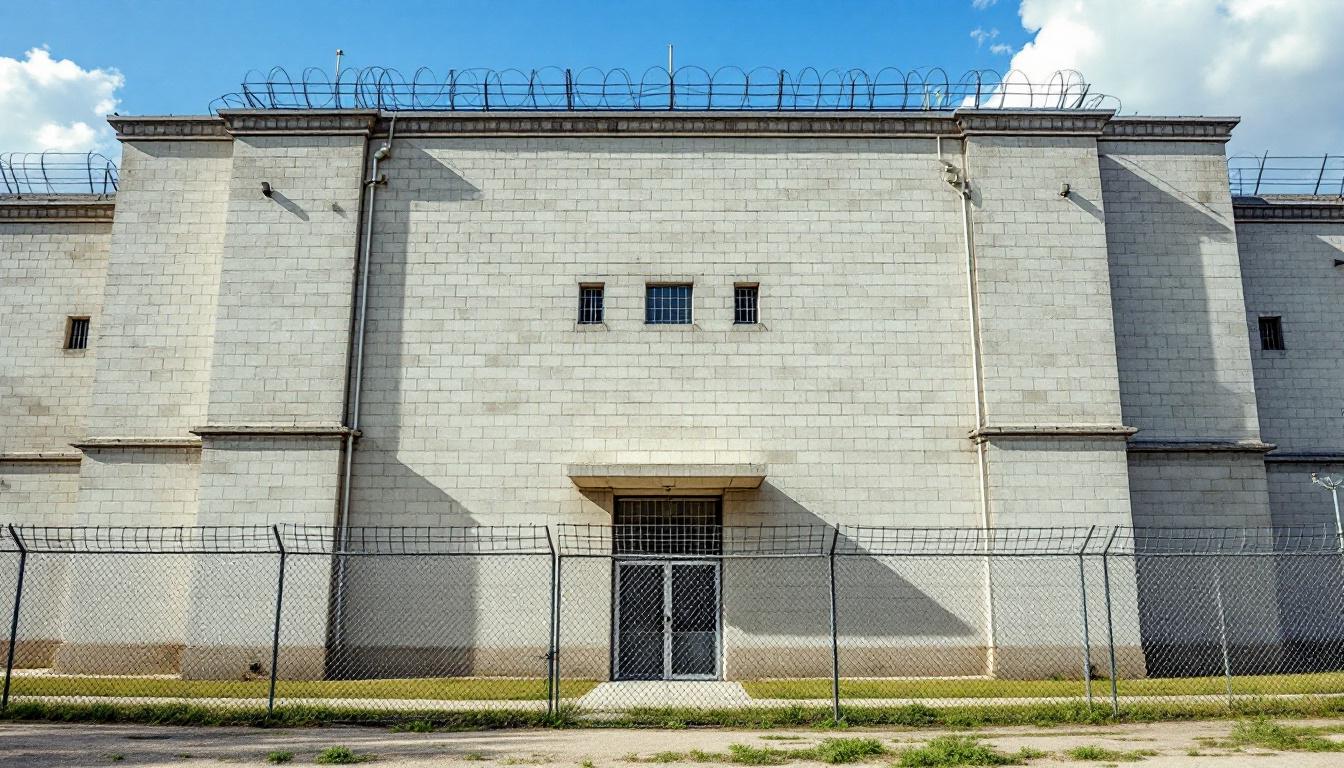
Quick Navigation
How to contact an inmate at Gibson County Correctional Complex
This comprehensive guide will walk you through how to connect with an inmate at Gibson County Correctional Complex. Follow the steps below to find an inmate and send letters and photos:
- Search for the inmate using our search tool below
- Create your account or log in to Penmate
- Write your message (up to 6,000 characters)
- Send instantly - inmates receive printed copies daily
Find an Inmate
Search for an inmate to start communicating today
Tip: You can search by first name, last name, or inmate ID number
To contact a person at Gibson County Correctional Complex start by searching for the person on the facility website. Perform a search by following these steps:
- Step 1: Enter their first name and last name into the search form and click "Search"
- Step 2: Locate their inmate record
- Step 3: Write down their Inmate ID and any housing information provided
Important! Be sure to enter the person's full name. Nicknames should not be used.
How to Send Messages to Inmates

You can use your phone or computer to send emails, letters, and photos to an inmate. Messages are sent electronically to inmate tablets or kiosks at the facility. If you would like to send a message, start by searching for an inmate at Gibson County Correctional Complex.
Sending Photos and Postcards

A great way to send love and support to a loved one at Gibson County Correctional Complex is to send photos and postcards. It only takes a few minutes to send photos from your phone and it makes a huge difference. You can also mail postcards with words of support and inspiration, or design your own postcard for special moments like birthdays and holidays.
Important! Be sure not to send any explicit photos or they may not be approved by the facility. You can also use a photo printing app like Penmate to make sure your photos are printed at the correct size (4x6 or 3x5) and are mailed according to the rules and regulations of Gibson County Correctional Complex.
Frequently asked questions about Gibson County Correctional Complex
-
How long does it take to deliver a message?
If you're sending an email message your letter is usually delivered within 24-48 hours. For messages sent via mail you should expect delivery within 3-7 days. All messages will need be approved by Gibson County Correctional Complex.
-
How much does it cost to send a message to Gibson County Correctional Complex?
You can send a message free using your phone or mail a message via USPS for the price of a $0.60 stamp and envelope. You can also purchase credits or e-stamps from services starting at $1.99.
-
What services can I use to contact an inmate at Gibson County Correctional Complex?
Penmate
You can use Penmate to send letters and photos to an inmate from your phone. It's an easy way to stay in touch during your loved one's incarceration. Use the inmate locator to find an inmate's location and contact information, then you can send messages within a few minutes.
Securus messaging
Securus may be another option for communicating with an inmate at Gibson County Correctional Complex. You can create a friends and family account and purchase credits to send messages. All messages will be reviewed and must be approved by the facility.
JPay
Some county jails and state prisons may support sending messages with JPay. You must register an account with the system, find your loved one, and purchase stamps to send messages. For some locations you can also attach photos.
Smart Jail Mail
You may also check if Smart Jail Mail is available at Gibson County Correctional Complex. Smart Jail Mail is operated by Smart Communications and has contracted with some state and county jails. After purchasing credits, your messages and photos are sent to the facility, printed out, and then handed out to your loved one.
-
What is the mailing address of Gibson County Correctional Complex?
Mailing address:
Gibson County Correctional Complex
401N S College St
Trenton, TN 38382
Phone: (731) 855-1121 -
What are the visiting hours at Gibson County Correctional Complex?
Visiting hours at Gibson County Correctional Complex vary by housing unit and security level. Generally, visits are scheduled on weekends and holidays, with some facilities offering weekday visits. Contact the facility directly at (731) 855-1121 or check their website for the current visiting schedule. Visits typically last 30-60 minutes and must be scheduled in advance.
-
What items are prohibited when sending mail to Gibson County Correctional Complex?
Prohibited items typically include: cash, personal checks, stamps, stickers, glitter, glue, tape, staples, paperclips, polaroid photos, musical or blank greeting cards, hardcover books, magazines with staples, and any items containing metal or electronics. Only send letters on plain white paper with blue or black ink. Photos must be printed on regular photo paper (no Polaroids). Always check with Gibson County Correctional Complex for their specific mail policies.
-
How do I send money to an inmate at Gibson County Correctional Complex?
You can send money to an inmate at Gibson County Correctional Complex through several methods: 1) Online using JPay, Access Corrections, or the facility's approved vendor, 2) Money orders mailed directly to the facility with the inmate's name and ID number, 3) Kiosks located in the facility lobby, or 4) Over the phone using a credit or debit card. Fees vary by method, typically ranging from $2.95 to $11.95 per transaction.
-
Can I schedule a video visit with an inmate at Gibson County Correctional Complex?
Many facilities now offer video visitation as an alternative to in-person visits. At Gibson County Correctional Complex, video visits may be available through services like Penmate, Securus Video Connect, GTL, or ICSolutions. Video visits typically cost $10-20 for 20-30 minutes and must be scheduled in advance. You'll need a computer or smartphone with a camera and reliable internet connection. Contact the facility for their specific video visitation policies and approved vendors.
-
What identification do I need to visit an inmate at Gibson County Correctional Complex?
All visitors must present valid government-issued photo identification such as a driver's license, state ID, passport, or military ID. Minors must be accompanied by a parent or legal guardian who can provide the minor's birth certificate. Some facilities require visitors to be on the inmate's approved visitation list, which may require a background check. Contact Gibson County Correctional Complex for specific ID requirements and visitor approval procedures.
-
How can I find out an inmate's release date?
To find an inmate's release date at Gibson County Correctional Complex, you can: 1) Use the online inmate search tool if available, 2) Call the facility's records department, 3) Contact the inmate's case manager or counselor, or 4) Have the inmate provide this information during a call or visit. For privacy reasons, some facilities only release this information to immediate family members.
Facility Overview
Contact Information
Gibson County Correctional Complex401N S College St
Trenton, TN 38382
Phone: (731) 855-1121
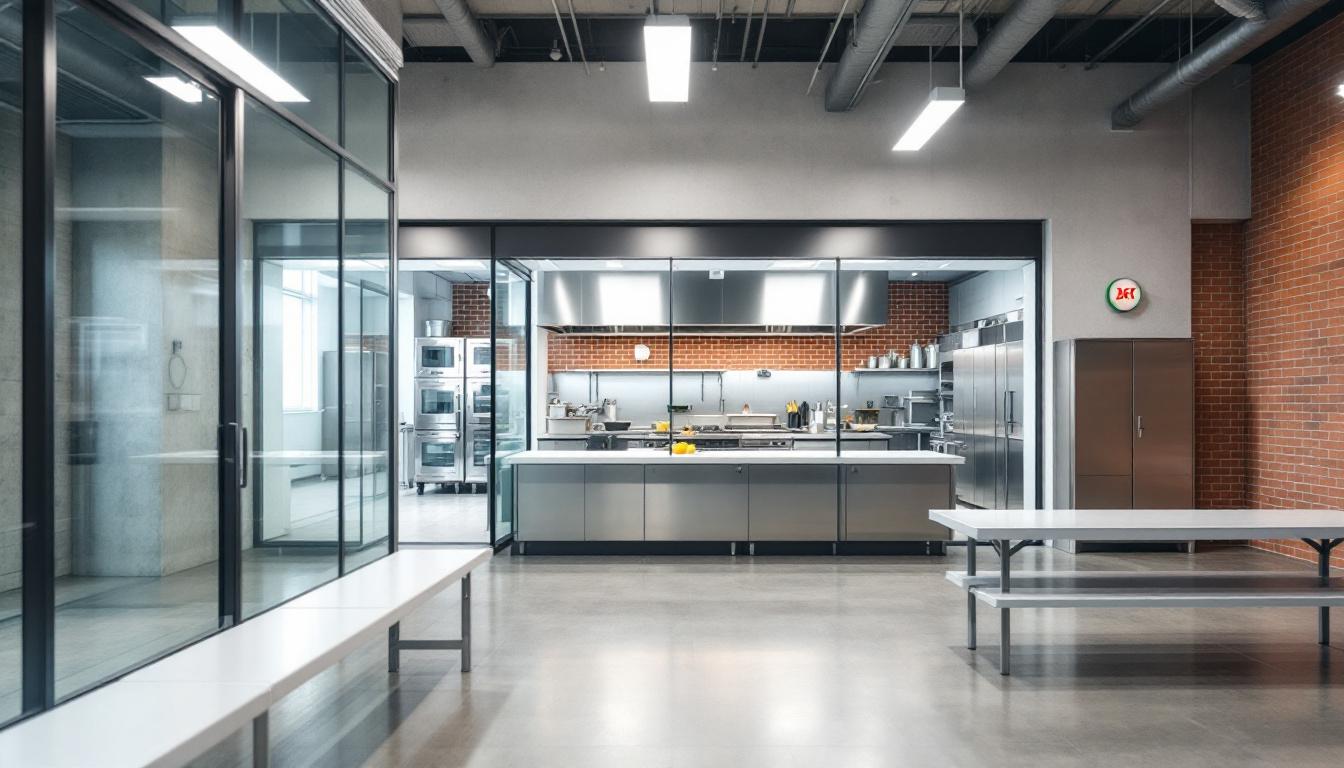
About Gibson County Correctional Complex
County jail facilities serve as crucial local detention centers within Tennessee's broader correctional framework, and Gibson County Jail, IN represents this essential community-based approach to corrections in Trenton, TN. Operating within the state's interconnected system of local and regional facilities, this TN correctional facility typically handles pre-trial detention, short-term sentences, and individuals awaiting transfer to other institutions. The population services extend beyond simple detention to encompass various support mechanisms that may include basic medical care, legal communication access, and visitation opportunities designed to maintain family connections during incarceration periods.
Positioned in Trenton, this county jail generally functions as part of Tennessee's decentralized correctional approach, where local facilities handle immediate community needs while coordinating with state-level institutions for longer-term cases. The facility typically offers fundamental services such as intake processing, classification procedures, and basic programming that may include educational opportunities, substance abuse awareness, and work programs when available. Family members and legal representatives can generally expect standard visitation protocols, commissary services, and communication systems that help maintain important relationships during detention periods.
The holistic approach to corrections at this level often emphasizes preparing individuals for successful community reintegration, whether through short-term detention or as a stepping stone within Tennessee's correctional continuum. Staff typically work to ensure basic needs are met while maintaining security protocols appropriate for a county-level facility, recognizing that many individuals served will eventually return to the local community and benefit from supportive services during their detention period.
Programs & Services
Support flows through multiple pathways at Gibson County Jail, creating opportunities for personal growth and skill development. The facility's approach centers on providing practical resources that help the population prepare for successful community reintegration. Programs typically focus on building essential life skills while addressing individual needs through various educational and therapeutic offerings.
Educational services form a cornerstone of the facility's programming, with opportunities ranging from basic literacy instruction to high school equivalency preparation. Distance learning options may supply additional academic pathways for those seeking to advance their education. Also available are vocational programs that teach practical job skills in areas such as food service operations and grounds maintenance. These hands-on training opportunities often include real-world experience that helps participants develop marketable abilities for future employment.
Support services extend beyond traditional education to address various reintegration challenges. Faith-based programs provide spiritual guidance and community connection for those who choose to participate. The facility also offers identification document assistance, helping the population secure essential paperwork needed for housing, employment, and accessing community services upon release. These comprehensive support systems work together to create a foundation for positive change and successful transitions back into the community.
Daily Life & Visitation
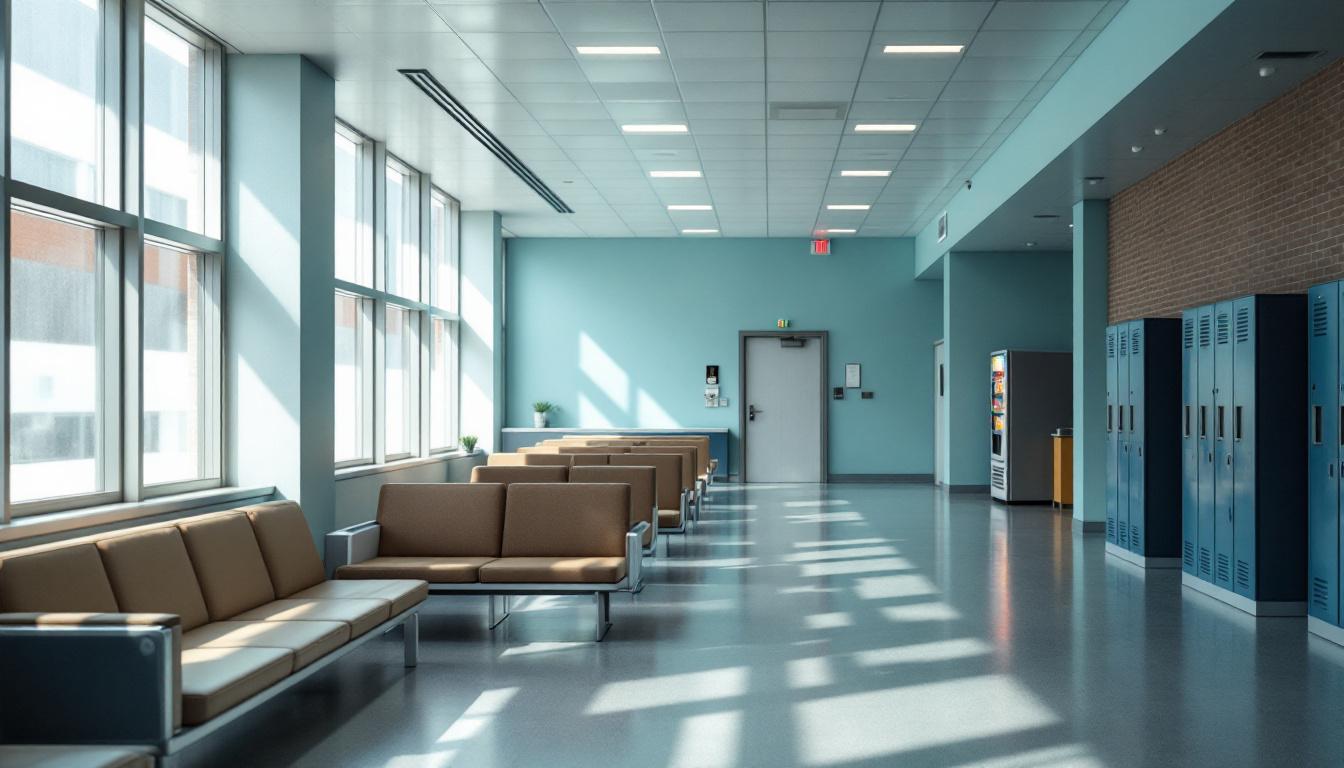
Organizational protocols shape every aspect of the experience for the population at Gibson County Jail, where structured schedules now govern daily activities from wake-up calls through evening lockdown. The population regularly follows established routines that include designated meal times, recreation periods, and programming sessions. Staff members coordinate these activities to maintain order while ensuring residents have access to necessary services and support.
Housing arrangements typically place residents in dormitory-style units or individual cells, depending on classification levels and available space. The population generally shares common areas for dining and recreation when not confined to their assigned quarters. Also, personal property allowances usually include basic hygiene items and a limited amount of approved clothing, while commissary services may provide additional necessities and approved snacks for those with available funds.
Programming schedules supply structure through educational classes, substance abuse counseling, and religious services that residents may attend based on their housing classification. However, work assignments within the facility often include kitchen duties, cleaning responsibilities, and maintenance tasks that help maintain daily operations. Family connections remain important through scheduled visitation periods and telephone privileges, though these communication options typically operate within specific timeframes and security guidelines established by facility administration.
Ready to Connect?
Start communicating with your loved one today
Search for an Inmate
